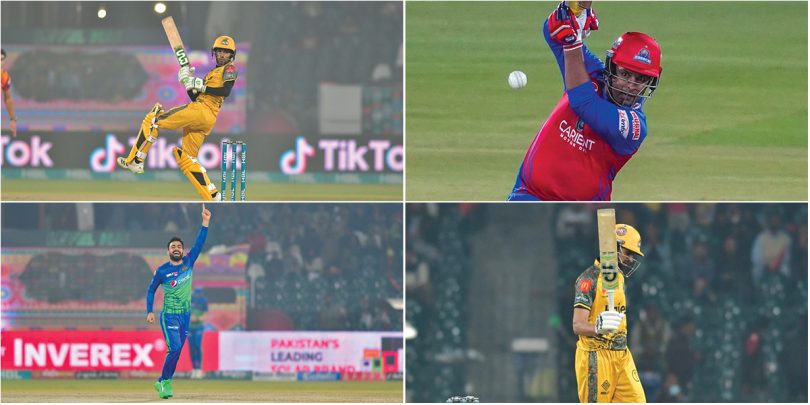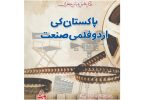The seventh edition of the Pakistan Super League (PSL) was not just a huge success in the country but also abroad where it was followed by cricket lovers.
Although Lahore Qalandars emerged as the victorious side, it was Multan Sultans who had a flawless tournament, besides two matches against the eventual winners.
If one looks at the tournament from the outside, they can learn not one or two but at least seven lessons about the dos and don’ts of cricket. What are these seven lessons, let’s have a look.
Use bench strength before others use it for you
Mohammad Rizwan may have emerged as the Player of the PSL 7, but there was a time when he was limited to the bench for unknown reasons. He spent the first two seasons with Lahore Qalandars before switching to Karachi Kings but was never a regular member for either team.
However, when he got a consistent run with the national side, he proved his worth as a player in the shortest format of the game. Seeing his consistency, he was appointed as the captain of Multan Sultans in the previous season.
In his first outing as the leader, he steered Sultans to their maiden PSL triumph.
Similarly, Karachi Kings kept the young wicketkeeper-batter Mohammad Haris on the bench in 2021, and Peshawar Zalmi were doing the same with him this year. He only got his chance after Kamran Akmal failed to score runs and was sidelined because of fitness concerns.
Thanks to his flamboyant batting and intelligent wicketkeeping, Zalmi were able to cruise into the knockout stage, which seemed unlikely after the Karachi-leg of PSL 7. The success of these two cricketers teaches others that they should use their bench strength before others pick those diamonds and utilise them against them.
No fitness, big problem!
This PSL edition was different from its predecessors in many ways, and fielding unfit players were one of them. Although Islamabad United’s Azam Khan and Paul Stirling, and Sharjeel Khan of Karachi Kings are good hitters of the ball, their fitness wasn’t up to the mark.
At times they missed crucial singles that in the end mattered a lot. The franchises must realise that they need to field players that are role models to the youngsters, instead of those who fall below the fitness standards.
Also, it was disheartening to see youngsters like Zeeshan Zamir as well as Shadab Khan, and Faheem Ashraf leaving the field due to injuries in crucial matches. Their management needs to keep an eye on these star players so that they don’t get injured in PSL and jeopardise their Pakistan careers.
The Importance of experimentation
Had Khushdil Shah been told before the tournament that he would end up taking 16 wickets in PSL 7, he would not have believed it himself. Thanks to Mohammad Rizwan’s captaincy and head coach Andy Flower’s planning, he excelled as an all-rounder and gave his team an edge over others due to his bowling.
Other captains can learn a thing or two from the Multan camp, where the idea was developed and executed beautifully.
One must also commend Peshawar Zalmi for going in with two emerging cricketers instead of the usual one in a few matches, and if that didn’t give confidence to the youngsters, I don’t know what will.
Regular keepers should keep wickets
The rules of the game might not change but trends do, and the trend of using a non-regular wicketkeeper instead of a regular one is clearly changing.
Yes, Azam Khan did a decent job behind the stumps but if there was a fitter and better wicketkeeper standing for Islamabad United, they might have a couple of more situations in their favour.
Similarly, using Ben Dunk as a makeshift keeper was a bad idea from Lahore Qalandars, as was Karachi’s decision to persist with Joe Clarke and Sahibzada Farhan as the gloveman, when a better keeper Rohail Nazir was in the squad.
We all saw Kamran Akmal struggle with the gloves on, and once Peshawar Zalmi changed their wicketkeeper, their luck changed.
Had Lahore Qalandars not been lucky on the day of the final, Zeeshan Ashraf’s selection would have been questioned for he was ‘behind’ the reprieve Shan Masood got, after being preferred over Phil Salt, whose brilliant wicketkeeping helped the team in the second Eliminator.
Bad calculations usually result in losses
Ever since he dropped a crucial catch in a Test match against the West Indies last year, Hasan Ali has been in terrible form. Moreover, his bowling and fielding cost Pakistan a place in the T20 World Cup final.
Even in the PSL league matches, he was erratic but the management kept selecting him and he kept disappointing them, before finally being benched due to an injury.
Had he not been selected after a couple of bad performances, it might have made a huge difference in Islamabad United’s standing, but bad things come to the fore after they have done the damage, and Hasan Ali’s performance was one such incident.
One must commend Lahore Qalandars’ Shaheen Shah Afridi for entrusting Zaman Khan and David Weise as his death bowlers, and that’s why he is the captain with the trophy.
Other captains like Peshawar Zalmi’s Wahab Riaz should learn a thing or two from him, so that the next time when there is a tough call to make, he will have enough options to chose form.
Using cricketers intelligently matters
Lahore Qalandars might have won the event, but the way they used their international batters was heartbreaking. Instead of using Phil Salt as an opening batter, sending Harry Brook and David Weise below Kamran Ghulam and Mohammad Hafeez in the initial matches, they stuck to the batting order devised after the toss. Had they used those cricketers intelligently, things might have been different ahead of the knockout stage.
Similarly, when stand-in Islamabad United captain Asif Ali promoted Mohammad Wasim Jr to the middle-order, he forgot what would their lower-order specialist Danish Aziz do if the top and middle-order collapsed. That’s exactly what happened and Islamabad lost the match as Aziz ran out of partners.
It’s a young man’s game unless you are Shoaib Malik or Imran Tahir
Yes, Mohammad Hafeez may have won the final for the Lahore, but one must not forget that had the team not reached the grand finale, the same Professor would have been criticised for his lacklustre performance in earlier matches.
He and other oldies (except Shoaib Malik and Imran Tahir) were overshadowed by youngsters this time around, and the franchise must acknowledge the fact that they need more young guns and fewer old heads if they are to win the tournament.
Not every 40-year-old is as fit as Shoaib Malik who ended the event as the fourth-highest scorer. Similarly, Imran Tahir’s 16 wickets helped Multan Sultans reach the final of the event, and when he didn’t excel, the team didn’t win.
I am still unable to cope with the promotion of 35-year-old Asif Afridi in the final, and if anyone has any ideas, do let me know. It was a strange decision, especially in the grand finale of a tournament where players from around the world were participating.







